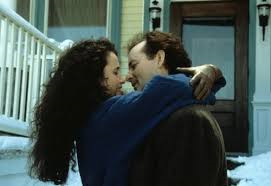If you say to the average person, “this feels like Groundhog Day,” they’ll probably know what you mean. They’ll know you mean it feels like the day is just an endless, inevitable series of cause and effects, in which minor variations occur, but the end result is pretty much the same. Well, at least they’ll probably know you’re referencing the Harold Ramis-directed, 1994 comedy-drama in which an unknown power forces weatherman Phil Connors (perfectly played by Bill Murray) to live the same day (Groundhog Day, in fact) over and over again. “Groundhog Day” has become part of the cultural lexicon in the way few movies do. Even if you haven’t seen the film, you’ll probably know what the phrase means.
Each day, Phil wakes up to find the calendar reset, with only him realizing he’s stuck in a time loop. He can make changes to the day, but everything will revert tomorrow. Every day, he goes through the same motions, with some variations. At first, he simply uses the loop to his advantage. He asks an attractive woman some basic high school questions so he can pretend to have known her years ago. He takes her to bed with a promise of marriage he knows won’t exist tomorrow. However, eternity can get boring after a while (especially an eternity in small town Pennsylvania), and despair eventually sets it. Eventually, he finds himself committing crimes, punching out an irksome high school acquaintance, attempting suicide, but nothing matters.
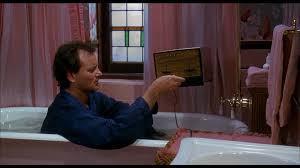
No matter what he does, the next day is always February 2nd and “I Got You, Babe” is always on the radio. What happens eventually, though, is Phil does something he didn’t expect: he begins to learn and evolve. He learns to play the piano and read French poetry, but more than that, he begins to see the good in those around him. He’s forced to notice them in this little pocket of repeating time. Along the way, he becomes a better man, finally breaking the spell and waking up to February 3rd.
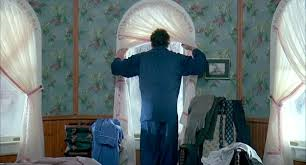
Sometimes a great comedy seems so effortless that it’s easy to underestimate the skills needed to carry it out. A great comedy can seem easy; a good comedy can seem dreadfully difficult. When I first saw Groundhog Day, I was around 12, and I didn’t fully realize what a masterpiece it was. I laughed at the jokes, appreciated the melancholic underpinnings, and moved on to other films. But it’s has always stayed with me. If it’s on tv, I’m powerless not to watch, and at least once or twice a year, I’m in the mood to put it in my DVD player. It’s a film that crept around the fringes of pop culture ubiquity and found its place.
I feel stronger towards the film than I did as a pre-teen, mostly because the monotonous grind of adult life wasn’t in my wheel house yet. Take, for instance, the moment in which Phil asks a local bowling alley patron, “What would you do if you were stuck in one place, and every day was exactly the same, and nothing that you did mattered?” The man’s response, “That about sums it up for me,” makes it all too clear that one doesn’t need a magical-realism time loop to feel like life is just repeating itself with no real ultimate goal.
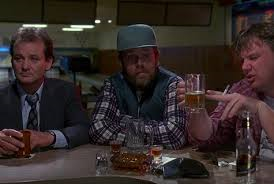
Maybe we don’t go on forever, but Groundhog Day doesn’t shy away from the idea that it can certainly feel like we do.
What’s remarkable about the film are its lack of answers. After all, we never learn why Phil is forced to relive the same day. There’s no witch’s curse or wish gone wrong. We also never know how long the cycle lasts, it could be a year or ten thousand years. It’s just something that happens until it doesn’t need to happen anymore. It’s obvious Phil is the catalyst, but it’s not clear how it’s happening, who is responsible, or, for much of its running time, what exactly Phil needs to do in order to move on to February 3rd. In a weaker film, those ambiguities might seem unsatisfying, but the mechanics of the plot aren’t really important in Groundhog Day. What matters is how Phil experiences the narrative, and he never really has any interest in the mechanics of his predicament. Why should we care if he doesn’t?
The film’s transformation may ultimately be built around a romance with Rita (Andie McDowell), a producer who’s so unambiguously good that she can’t help but make Phil a better man. Initially, Phil just wants her for a one-night stand, but he ultimately begins to see her for the wonder that she is. McDowell’s range as an actress may be limited, but she’s charming here. She begins the loop as simply another conquest, and one of the film’s best montages involves Phil, for self-serving reasons, learning more and more about Rita’s hopes, interests, and ideals, only to end every evening with her slapping him across the face.
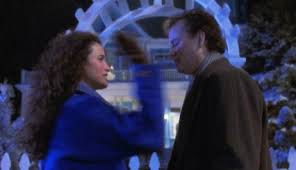
What happens after all of these pick-up attempts, however, is something Phil doesn’t anticipate: he comes to see Rita as not just another conquest, but as someone he truly loves. By absorbing so much about her, he comes to see that she means more to him than he would have thought possible. He becomes a better person, almost unintentionally, but that evolution makes him finally worthy of Rita returning his affection. He wants to be worthy of her. Jack Nicholson may have told Helen Hunt in As Good as it Gets, “You make me want to be a better man,” but Phil Connors proved the significance of such a sentiment.
The film has an incredibly sharp script, with a flawless blend of cynicism and whimsy, but it wouldn’t really shine without the right person in the starring role. Groundhog Day exists as perfect melding of the right star in the right vehicle. Bill Murray has always been an interesting comedic presence. He’s almost the Hamlet of comedic actors. In the cinematic universes he inhabits, no one else can keep up with his wit and he treats the world with contempt as a result. His best roles often have a hint of melancholy beneath the jokes. He’s an outsider and perhaps not always by choice. Here he makes it clear to the viewer how unpleasant an individual Phil Connors really is, but he doesn’t force it. He’s biting and snide. He condescends to everyone around him for no other reason than he knows he can, and he doesn’t overplay it. Take, for example, the first time he encounters Ned, a person from his past who is an instant irritation. When Ned asks what Phil is doing later, Murray simply states, “Something else.”
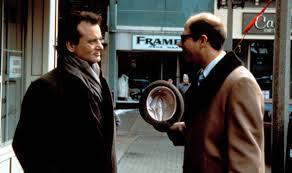
A less-skilled actor might over-sell his dickishness, but Murray plays it as a simple fact. Phil is a prick, but a grounded in the real world prick. As a result, his eventual transformation feels natural. He treats people with contempt because he has no interest in taking the time to know or understand them. Suddenly, he has nothing but time to see that everyone has their own personal battles and conflicts. In fact, he is not unique. By being forced to stand still, he comes to see everyone’s foibles, virtues, and complexities. Groundhog Day‘s redemptive arc succeeds because Murray ensures Phil never really loses his edge. His jokes lose their meanness but not their bite. Even on his final Groundhog Day cycle, in which he saves a boy who falls from a tree but never expresses appreciation, Phil says, “I’ll see you tomorrow. Maybe.” His dry, detached line readings make the film funnier and sadder than it could have been, because despair always seems so close to his character’s surface.
Groundhog Day was probably the springboard for the later phase of his career in which his cynical humor remains, but the world weariness is more prominently displayed than it once was. It put on full display the dramatic undercurrent that had often lurked beneath the surface of his best performances. He is incapable of a false note, which is why both his cynicism and sincerity read so believably.
Ultimately the film works for the reasons the best fables work: it shows the triumph of redemption by not hiding the darkness. It’s uplifting and life-affirming, but the happy ending feels earned and a natural conclusion to the narrative. During his final Groundhog Day, Phil references Chekhov’s view of winter as “bleak and dark, bereft of hope,” and that he knows “that winter is just another step in the cycle of life” that leads to spring and rebirth. That initial perception encapsulates pre-transformation Phil, his perpetual Groundhog Days “just another step” in his life cycle. What matters is, Phil is now wise enough to see the distinction.
